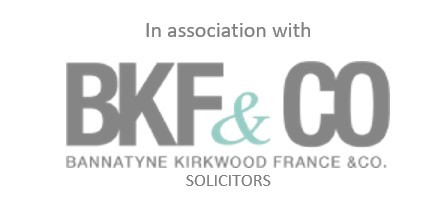The much anticipated first draft of the Housing Bill (the Bill) which (when/if passed will become the Housing (Scotland) Act 2025) was published by the Scottish Government on 26 March 2024. As with all bills the wording of some can change and provisions can be added or removed as it goes through the various stages of review.
There are parts of the Bill that do not relate to the private rented sector (PRS), for example a significant proportion relates to social tenancies and local authorities. In this blog, I will only focus on what is proposed by way of rent controls that would affect the PRS. Subsequent blogs will look at the other areas on the Bill that, if passed, will impact the PRS. The Bill, as introduced can be found here.
Rent Control Areas (RCAs)
Generally
Whilst the consultation that foreshadowed the Bill suggested that RCAs were to be at the instigation of local authorities and whilst technically that may be true, the Bill puts a duty on Local Authorities to periodically assess the rent conditions within their local authority area. That includes looking at rates of rent increases within their area and to report to the Scottish Government no later than 30/11/26 and at least every five years thereafter (there are further provisions for interim assessments where changing conditions render that necessary).
In any report, the local authority has to set out whether they recommend the setting up of a RCA in their area to control the rate at which rents are increasing. Although local authorities have to provide a recommendation, it is for the Scottish Government (SG) to decide on whether to put a RCA in place following receipt of such a report. Interestingly it seems that, the trigger for determining whether to put a RCA in place is the receipt of the report, not any recommendation contained therein. The test for whether a RCA should be implemented is:
- Is a RCA necessary and proportionate for the purpose of protecting the social and economic interests of tenants in the area; and
- Is a RCA a necessary and proportionate control of the landlord’s use of their property in the area?
Before any RCA can be put in place the SG has a duty to consult on the need for a RCA and the type of proposed restrictions. If the decision is to progress to a RCA, the SG has a duty to report to the Scottish Parliament their reasons for that as well as the type of restrictions they think are required.
What tenancies would be affected?
RCAs would only affect Private Residential Tenancies under the 2016 Act and, as drafted, do not apply to Assured (including short-assured) tenancies. However, buried near the end of the Bill is a provision for further regulations which, if enacted, would convert all existing assured (including short-assured) tenancies to PRTs from a specified date (which would not be less than 12mths from the date those regulations come into force). If that happens, all tenancies (except any remaining Regulated tenancies under the 1984 Act) would become PRTs anyway and any contractual rent review clauses contained in such assured tenancies would cease to have effect as the only way to increase rents for PRTs is to follow the statutory procedure set out in Chapter 2 of the 2016 Act. That would, in due course include the RCA provisions assuming the Bill becomes an act.
What controls on Rent will there be in RCAs?
The Bill does not set out exactly what any controls would be, although the focus is on controlling rent increases. It just sets out what sort of provisions may be put in place. Any actual controls within a RCA would be set out in further regulations issued by the SG. What the Bill states is the type of controls that could be included in a RCA are:
- A specified percentage (which could be 0%);
- An amount falling within a specified range;
- An amount to be calculated with reference to specified factors or criteria, which could include a formula (for example like we have with the rules on RPZs).
How long would a RCA be in place for?
Any RCA would be in place for five years (unless revoked earlier), although the rules state that this should be kept under review and can be varied as required (that includes changing the type of control, for example lifting a cap to allow specified). Whilst there is nothing in the Bill that allows the RCA to be continued, the explanatory notes suggest that, where the SG want to extend rent controls, they can simply issue new regulations and put a new RCA in place on the same terms if they wish. Alternatively, they could simply amend the Bill (which would be an Act by then) to allow RCAs to be extended.
Will landlords be able ‘reset’ rents to market rates for new tenancies?
Whilst the rent controls themselves focus in on rent increases, unlike the previous temporary and what we have under the new adjudication rules, the proposed controls do not just apply to ‘in tenancy’ increases and landlords will not be able to ‘re-set’ market rents where one tenancy has ended, and a new tenancy starts in most circumstances.
Under the proposed rules for RCAs there will be limits on initial rents for new tenancies (what is called a ‘current’ tenancy) where the property was ‘previously let’ in what is referred to as an ‘immediately preceding tenancy’. That will apply where a new tenancy is being set up for a property in a RCA which involves the same (or substantially the same) property that was let under a PRT (or assured tenancy) within 12mths or less before the start of the ‘current tenancy’. This part of the Bill is quite difficult to read and not particularly intuitive in that ‘current’ tenancies are to be called ‘tenancy A’ and ‘immediately preceding’ tenancies are called ‘tenancy B’, so, in other words, the sequence is Tenancy B is followed by Tenancy A.
Where that is the case, the initial rent will be restricted by either:
- Where there was a rent increase issued in the preceding tenancy within 12mths before the start of this new or current’ tenancy, then the initial rent must be the same amount as the final rent in the preceding tenancy.
- Where there was no rent increase within the preceding 12mths (but the property was ‘previously let’ ie within the preceding 12mths), then the initial rent for that new tenancy cannot be more than the final rent charged in that preceding tenancy plus the permitted increase allows in that particular RCA (which of course could be 0%).
Are there any exemptions?
Where a property is purchased by a landlord with ‘vacant possession’ and the let is the first one since the purchase, then such a tenancy will be classed as an ‘excluded property’ and will be excluded from controls on the initial rent allowing the initial rent to be set at a market rent. Thereafter, the rent controls will apply. Likewise, where a property has been vacant for more than 12mths prior to the start date of the new tenancy, it is not classed as an ‘immediately preceding tenancy’ and initial rent is not subject to controls meaning market rent can be charged (again after that rent controls will apply).
Sections 13 and 14 also set out that the SG, by way of further regulations (not available as yet), can set out that certain types of properties may be exempt from rent controls or may be subject to modified restrictions (for example different caps) in RCAs. No specific details are given but they can be in relation to ‘circumstances relating to’ the landlord or tenant or ‘of the property according to its type’.
How often can rent be increased?
In relation to RCAs, there are specific rules for the frequency of rent increases in that, landlords cannot increase rents in a ‘current tenancy’ (regardless of the initial rent charged) where they increased rent in a ‘preceding tenancy’ within 12mths. In short, rent increases are limited to once every 12mths regardless of whether or not there is a new tenancy.
Out with RCAs and in addition the Bill proposes to change the current rules that allow landlords to issue a Rent Increase Notice at any time after the tenancy starts (thereafter being limited to increasing rent every 12mths) to not being able to increase rent during the first 12mths of a tenancy (that of course allows the RIN to be issued in month nine to take effect at the anniversary of the start date).
Tenant challenges
There are 2 routes available to tenants:
- Tenants can refer matters to a Rent Officer where they think the proposed rent increase is above any permitted rate.
- Where a tenant in a ‘current tenancy’ thinks that the initial rent has been set too high with reference to the previous tenancy or that the landlord is seeking to increase the rent earlier than 12mths after the last rent increase, they can refer direct to the First-tier Tribunal.
In both cases the Bill states that such referral can only occur where the tenant notifies the landlord in writing within 21 days of receipt of any rent increase notice that they believe the rent is too high or shouldn’t be increased yet and why they think that is the case. There is thereafter a further 21 day period allowed for the landlord and tenant to reach an agreement on what should happen and to vary things. If no agreement is reached, then a tenant has up until 42days after giving their original notice to lodge an application/appeal with the tribunal.
There are further rules about how a rent officer, or the tribunal should deal with such referrals (they can’t fix rent above what would be allowed under the RCA rules) and what to do with under or over paid rent, but these are not particularly material or different to what happens for rent appeals generally.
Are there any other proposed rules that apply in RCAs?
Where a ‘person’ (so that means landlords or agents) advertises a property for let in a RCA, there is certain information that must be included in the advert. That is:
- Where the property was let previously (ie within the 12mths preceding the advert)
- The rent payable under the previous tenancy;
- The date of the most recent rent increase for that property;
- The proposed rent for any new tenancy; and
- Confirmation that the property is in a RCA.
- Where the property was not let previously (or it is the first let after being purchased with vacant possession)
- The proposed rent for any new tenancy; and
- Confirmation that the property is in a RCA.
If an agent fails to comply with these requirements in a RCA, it would also be a breach of the Code of Practice (see paras 16, 19 and 41 of the Code).
Is there anything else in the Bill that impacts rents even if there is not a RCA in place?
I have mentioned the proposed change that landlords will not be able to increase rent within the first 12mths of a tenancy already, but there is also a subtle change to the approach by rent officers to adjudication of rent disputes (and the tribunal if dealing with an appeal). Under the 2016 Act (not including the current temporary changes to the adjudication rules), the rent officer fixes the rent and that is the rent that will apply (fixed by reference to ‘open market rent’). The proposed change is that the rent will be fixed at adjudication or appeal will be the lower of the rent officer determination and what is stated on the rent increase notice. So, if the landlord underestimates the rent, that is the rent that will be fixed. Similar changes are proposed to the 1988 Act albeit it seems that assured and short-assured tenancies will disappear all at once if the SG provides for that in further regulations.
If you require any further information or advice, please contact us or watch our blogs for further updates.











